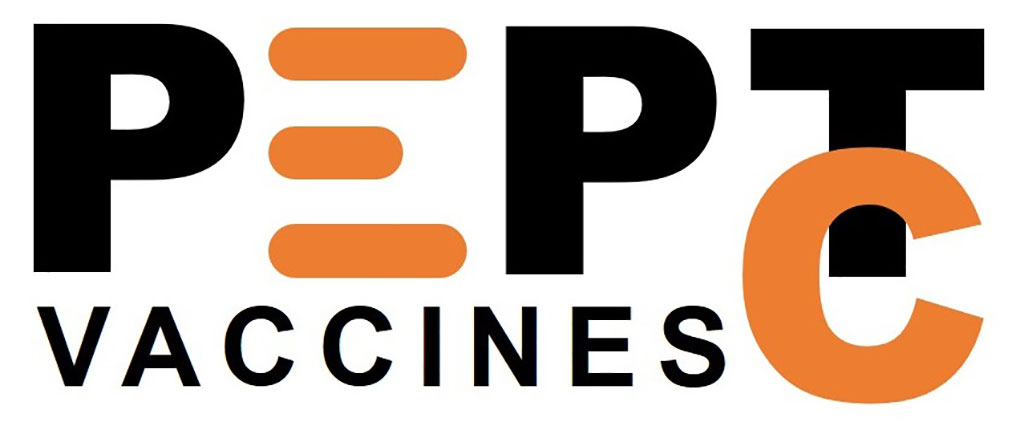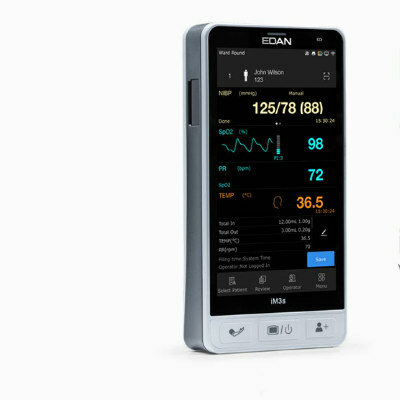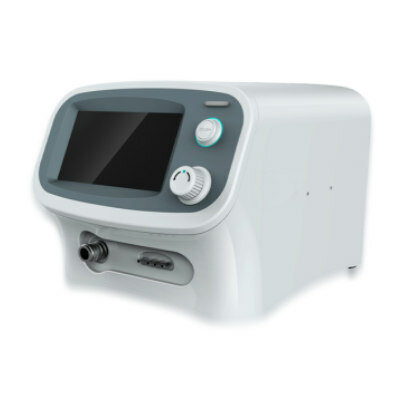Preventive COVID-19 Peptide Vaccine Aims to Provide Broad and Long-Lasting Immune Response
|
By HospiMedica International staff writers Posted on 17 Jun 2020 |

Illustration
Scientists have developed and successfully tested in silico a preventive COVID-19 peptide vaccine which is designed to elicit long-term T cell immunity in contrast to most of the vaccine candidates being developed with antibodies.
The preventive vaccine product, PolyPEPI-SCoV-2, has been developed by Treos Bio Limited (London, UK) using its proprietary, computational vaccine design technology. The company has transferred all rights, including pending patent applications, for the preventive COVID-19 peptide vaccine to a newly-formed subsidiary, PepTC Vaccines Limited (London, UK).
PepTC Vaccines’ PolyPEPI-SCoV-2 investigative vaccine consists of 10 different, 30-amino acid long synthetic peptides. To design its experimental SARS-CoV-2 vaccine, Treos took into consideration both the data obtained from patients who recovered from the previous coronavirus (SARS-CoV) epidemy in 2003 and other information specific to variants of the current coronavirus. Treos selected peptide fragments of the conserved regions of the presently known multiple viral structural protein sequences as well as multiple shared personal epitopes (PEPIs) of subjects with different ethnicities for its model population. Epitope selection was directed toward both HLA class I and HLA class II specific PEPIs to induce robust T cell responses that will establish memory T cell pools.
In silico preclinical testing of the PolyPEPI-SCoV-2 vaccine in diverse ethnic groups of approximately 16,000 HLA genotyped subjects from a US bone marrow donor database, resulted in an equally high proportion of subjects showing both CD8+ and CD4+ T cell responses in each ethnic group. PepTC Vaccines expects to advance to human clinical studies for its investigational PolyPEPI-SCoV-2 vaccine by October 2020 and announce preliminary trial results in March 2021. PepTC Vaccines’ approach provides cost-effective and immediately scalable manufacturing since it relies on well-established, accessible manufacturing technology and widely available chemicals to produce the synthetic peptides used in Treos’ immunotherapies.
“Our efforts are focused on the development of an effective, safe, and potentially best-in-class vaccine against SARS-CoV-2. We are addressing the challenges of the heterogeneity of individuals’ immune response, the potential for structural variations in the infecting virus, and the observed phenomenon of long-term immunity to coronaviruses likely stemming from T cell activity,” said Dr. Christopher C. Gallen, Executive Chairman of Treos. “Based on our clinical experience with our PolyPEPI peptide immunotherapy in metastatic colorectal cancer patients and our validated in silico human model, we believe that our approach has the potential to provide a broad and long-lasting immune response, independent of gender, age, or ethnicity, and be able to protect people worldwide against COVID-19.”
“We anticipate that as the coronavirus continues to evolve and as more data are collected, additional mutations will be observed. Such mutations will not affect the global coverage of our vaccine, provided that they occur outside of the identified epitope regions,” said Enikő R. Tőke, Ph.D., Chief Scientific Officer for Treos. “If mutations do occur within any of the epitope regions selected, then the intact immunogenic epitopes could still provide protection against the virus since a majority of the subjects will still have a broad repertoire of virus-specific memory T cell clones.”
Related Links:
Treos Bio Limited
PepTC Vaccines Limited
The preventive vaccine product, PolyPEPI-SCoV-2, has been developed by Treos Bio Limited (London, UK) using its proprietary, computational vaccine design technology. The company has transferred all rights, including pending patent applications, for the preventive COVID-19 peptide vaccine to a newly-formed subsidiary, PepTC Vaccines Limited (London, UK).
PepTC Vaccines’ PolyPEPI-SCoV-2 investigative vaccine consists of 10 different, 30-amino acid long synthetic peptides. To design its experimental SARS-CoV-2 vaccine, Treos took into consideration both the data obtained from patients who recovered from the previous coronavirus (SARS-CoV) epidemy in 2003 and other information specific to variants of the current coronavirus. Treos selected peptide fragments of the conserved regions of the presently known multiple viral structural protein sequences as well as multiple shared personal epitopes (PEPIs) of subjects with different ethnicities for its model population. Epitope selection was directed toward both HLA class I and HLA class II specific PEPIs to induce robust T cell responses that will establish memory T cell pools.
In silico preclinical testing of the PolyPEPI-SCoV-2 vaccine in diverse ethnic groups of approximately 16,000 HLA genotyped subjects from a US bone marrow donor database, resulted in an equally high proportion of subjects showing both CD8+ and CD4+ T cell responses in each ethnic group. PepTC Vaccines expects to advance to human clinical studies for its investigational PolyPEPI-SCoV-2 vaccine by October 2020 and announce preliminary trial results in March 2021. PepTC Vaccines’ approach provides cost-effective and immediately scalable manufacturing since it relies on well-established, accessible manufacturing technology and widely available chemicals to produce the synthetic peptides used in Treos’ immunotherapies.
“Our efforts are focused on the development of an effective, safe, and potentially best-in-class vaccine against SARS-CoV-2. We are addressing the challenges of the heterogeneity of individuals’ immune response, the potential for structural variations in the infecting virus, and the observed phenomenon of long-term immunity to coronaviruses likely stemming from T cell activity,” said Dr. Christopher C. Gallen, Executive Chairman of Treos. “Based on our clinical experience with our PolyPEPI peptide immunotherapy in metastatic colorectal cancer patients and our validated in silico human model, we believe that our approach has the potential to provide a broad and long-lasting immune response, independent of gender, age, or ethnicity, and be able to protect people worldwide against COVID-19.”
“We anticipate that as the coronavirus continues to evolve and as more data are collected, additional mutations will be observed. Such mutations will not affect the global coverage of our vaccine, provided that they occur outside of the identified epitope regions,” said Enikő R. Tőke, Ph.D., Chief Scientific Officer for Treos. “If mutations do occur within any of the epitope regions selected, then the intact immunogenic epitopes could still provide protection against the virus since a majority of the subjects will still have a broad repertoire of virus-specific memory T cell clones.”
Related Links:
Treos Bio Limited
PepTC Vaccines Limited
Latest COVID-19 News
- Low-Cost System Detects SARS-CoV-2 Virus in Hospital Air Using High-Tech Bubbles
- World's First Inhalable COVID-19 Vaccine Approved in China
- COVID-19 Vaccine Patch Fights SARS-CoV-2 Variants Better than Needles
- Blood Viscosity Testing Can Predict Risk of Death in Hospitalized COVID-19 Patients
- ‘Covid Computer’ Uses AI to Detect COVID-19 from Chest CT Scans
- MRI Lung-Imaging Technique Shows Cause of Long-COVID Symptoms
- Chest CT Scans of COVID-19 Patients Could Help Distinguish Between SARS-CoV-2 Variants
- Specialized MRI Detects Lung Abnormalities in Non-Hospitalized Long COVID Patients
- AI Algorithm Identifies Hospitalized Patients at Highest Risk of Dying From COVID-19
- Sweat Sensor Detects Key Biomarkers That Provide Early Warning of COVID-19 and Flu
- Study Assesses Impact of COVID-19 on Ventilation/Perfusion Scintigraphy
- CT Imaging Study Finds Vaccination Reduces Risk of COVID-19 Associated Pulmonary Embolism
- Third Day in Hospital a ‘Tipping Point’ in Severity of COVID-19 Pneumonia
- Longer Interval Between COVID-19 Vaccines Generates Up to Nine Times as Many Antibodies
- AI Model for Monitoring COVID-19 Predicts Mortality Within First 30 Days of Admission
- AI Predicts COVID Prognosis at Near-Expert Level Based Off CT Scans
Channels
Critical Care
view channel
Ingestible Smart Capsule for Chemical Sensing in the Gut Moves Closer to Market
Intestinal gases are associated with several health conditions, including colon cancer, irritable bowel syndrome, and inflammatory bowel disease, and they have the potential to serve as crucial biomarkers... Read moreNovel Cannula Delivery System Enables Targeted Delivery of Imaging Agents and Drugs
Multiphoton microscopy has become an invaluable tool in neuroscience, allowing researchers to observe brain activity in real time with high-resolution imaging. A crucial aspect of many multiphoton microscopy... Read more
Novel Intrabronchial Method Delivers Cell Therapies in Critically Ill Patients on External Lung Support
Until now, administering cell therapies to patients on extracorporeal membrane oxygenation (ECMO)—a life-support system typically used for severe lung failure—has been nearly impossible.... Read moreSurgical Techniques
view channel
Intravascular Imaging for Guiding Stent Implantation Ensures Safer Stenting Procedures
Patients diagnosed with coronary artery disease, which is caused by plaque accumulation within the arteries leading to chest pain, shortness of breath, and potential heart attacks, frequently undergo percutaneous... Read more
World's First AI Surgical Guidance Platform Allows Surgeons to Measure Success in Real-Time
Surgeons have always faced challenges in measuring their progress toward surgical goals during procedures. Traditionally, obtaining measurements required stepping out of the sterile environment to perform... Read morePatient Care
view channel
Portable Biosensor Platform to Reduce Hospital-Acquired Infections
Approximately 4 million patients in the European Union acquire healthcare-associated infections (HAIs) or nosocomial infections each year, with around 37,000 deaths directly resulting from these infections,... Read moreFirst-Of-Its-Kind Portable Germicidal Light Technology Disinfects High-Touch Clinical Surfaces in Seconds
Reducing healthcare-acquired infections (HAIs) remains a pressing issue within global healthcare systems. In the United States alone, 1.7 million patients contract HAIs annually, leading to approximately... Read more
Surgical Capacity Optimization Solution Helps Hospitals Boost OR Utilization
An innovative solution has the capability to transform surgical capacity utilization by targeting the root cause of surgical block time inefficiencies. Fujitsu Limited’s (Tokyo, Japan) Surgical Capacity... Read more
Game-Changing Innovation in Surgical Instrument Sterilization Significantly Improves OR Throughput
A groundbreaking innovation enables hospitals to significantly improve instrument processing time and throughput in operating rooms (ORs) and sterile processing departments. Turbett Surgical, Inc.... Read moreHealth IT
view channel
Printable Molecule-Selective Nanoparticles Enable Mass Production of Wearable Biosensors
The future of medicine is likely to focus on the personalization of healthcare—understanding exactly what an individual requires and delivering the appropriate combination of nutrients, metabolites, and... Read more
Smartwatches Could Detect Congestive Heart Failure
Diagnosing congestive heart failure (CHF) typically requires expensive and time-consuming imaging techniques like echocardiography, also known as cardiac ultrasound. Previously, detecting CHF by analyzing... Read moreBusiness
view channel
Expanded Collaboration to Transform OR Technology Through AI and Automation
The expansion of an existing collaboration between three leading companies aims to develop artificial intelligence (AI)-driven solutions for smart operating rooms with sophisticated monitoring and automation.... Read more



















